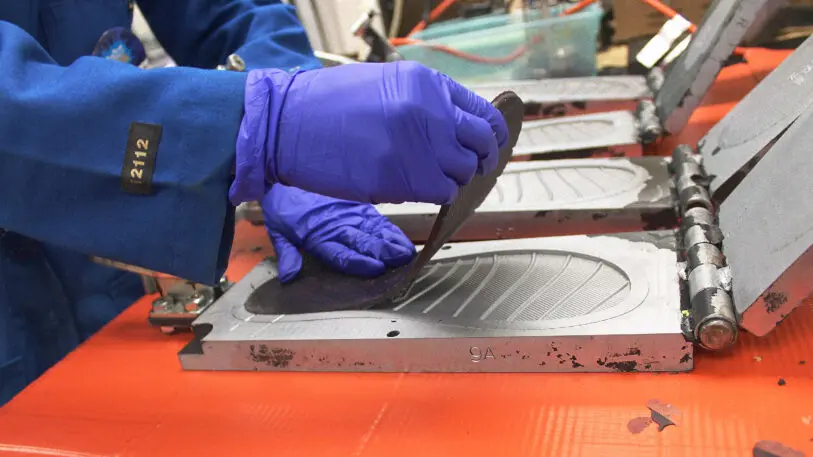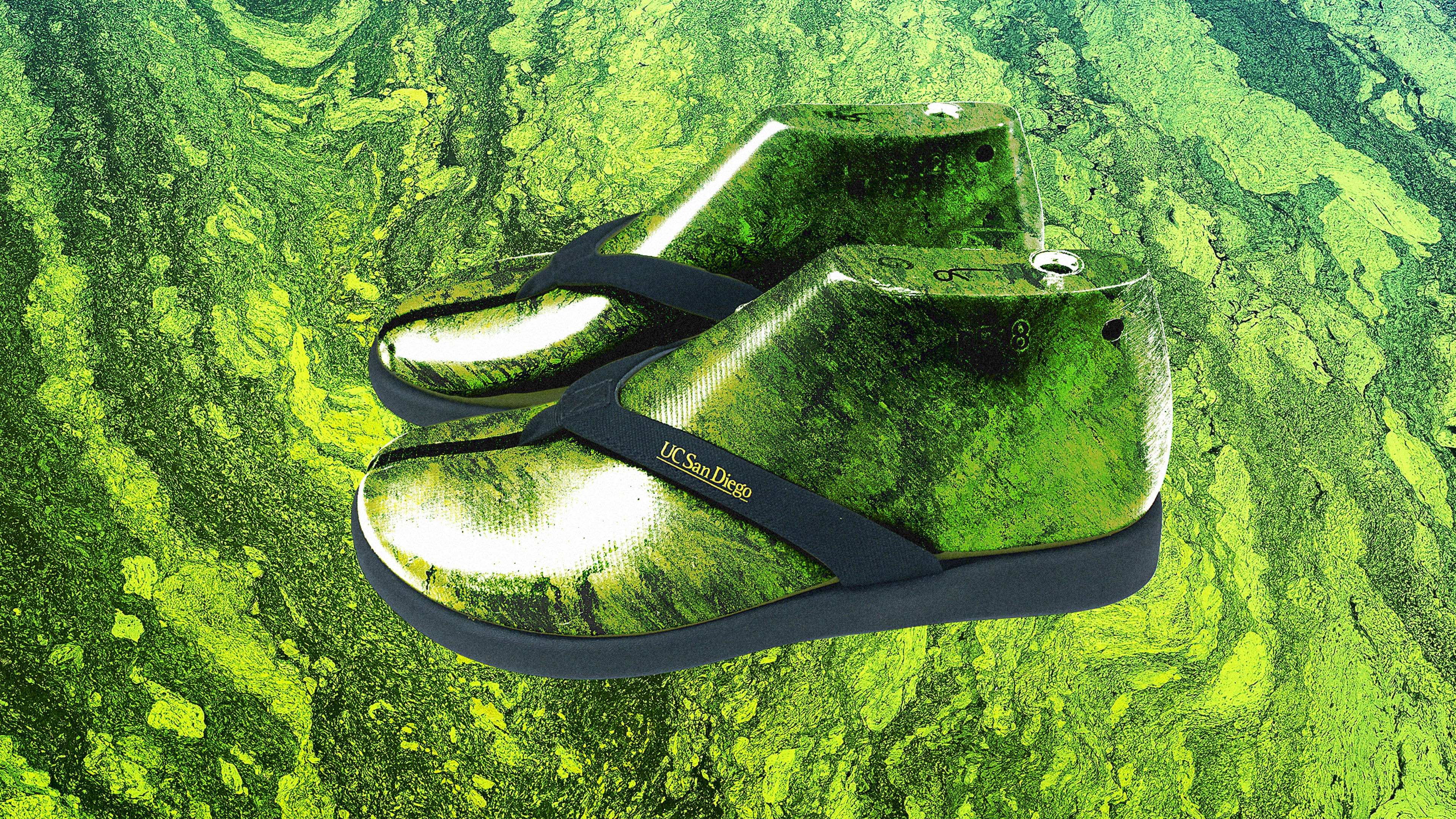If you stand on a beach in India or Thailand, you’ll likely see dozens of flip-flops wash up onto the shore. An estimated three billion end up in waterways or the ocean every single year, choking sea life and breaking into tiny particles that end up in the food chain.
But a small lab in San Diego called Algenesis has found a solution to the world’s flip-flop problem. It’s developed a biodegradable, algae-based polyurethane, the foamy plastic that’s commonly used to make the footbeds of shoes and sandals. Next year, it will launch a flip-flop brand in-house to demonstrate this material in action. This plastic has the potential to transform not only the $215 billion footwear industry but also the $1.2 trillion plastic industry, which churns out more than 300 tons of plastic every year.

So what makes this material so much better than traditional plastic? For one thing, it requires a lot less carbon to manufacture. Traditional plastic is made from crude oil, a resource that comes from ancient algae (among other plants) that are baked under the earth’s surface for millions of years at high pressure. Extracting oil, then refining it, is a highly carbon-intensive process that accelerates climate change. Algenesis, meanwhile, transforms algae directly into oil, then into plastic, in a controlled lab setting. “You extract the oil from algae in similar ways that you extract oil from soybeans or canola seeds,” says Stephen Mayfield, director of the California Center for Algae Biotechnology at U.C. San Diego, who founded Algenesis five years ago. “Once we get the oil, we chemically process it to form polyurethanes.”
Unlike crude oil, which exists in limited quantities, algae is an abundant, renewable resource. Algenesis buys theirs from an algae farm. And what’s more, algae actually takes carbon out of the atmosphere through photosynthesis.
But this is only half of the puzzle. The other half goes into effect when the flip-flop has reached the end of its life. At that point, the shoes will completely biodegrade like any other organic material. The customer can throw the flip-flop in the trash, knowing that when it arrives in the landfill, organisms and enzymes will consume it, so it will disappear in a matter of months. Mayfield says there are fewer of the organisms that can break it down in the ocean, so Algenesis is currently working on ways to accelerate the decomposition process in the ocean.
Mayfield stresses that the plastic in Algenesis’s flip-flops isn’t just breaking down into tiny particles, which is what happens to traditional plastic. (While you can’t see microplastics in rainwater and fish, they’re there.) This plastic is fully consumed by organisms that digest it in their bodies. “Our material goes all the way down to zero,” he says. “Organisms cut the bonds in the polymers, then they eat the small molecules. It turns into natural products.”
While Algenesis’s flip-flops are headed to the landfill for now, the company’s president, Tom Cooke, says the next big challenge is figuring out how to turn its old flip-flops into new flip-flops. In saying this, he’s not talking about plastic recycling as we know it, which is basically melting down plastic and using it in new products. Recycled plastic contains impurities, so it must be combined with virgin plastic to create new products. (Many water bottles that are marketed as made from recycled materials in fact only contain between 7% and 50% recycled plastic.) Cooke and Mayfield, meanwhile, would like to break their algae-based plastic down into its constituent polymers, which can then be transformed back into shoes. “It’s molecular recycling,” says Cooke, who previously served in top positions at Reef and Vans. “It’s the circular holy grail.”
For Cooke, helping to launch a footwear brand that doesn’t destroy the planet is a personal quest. He’s spent two decades working for the shoe industry, which churns out 25 billion pairs a year for only 8 billion humans. In addition to Algenesis’s own flip-flop, Cooke is also reaching out to contacts in the footwear industry to make the lab’s materials available to other companies. Reef, Cooke’s former employer, is already on board, and Cooke says it intends to launch a shoe incorporating Algenesis’s plastic soon.
Eventually, however, Mayfield’s dream is to develop other forms of biodegradable plastic beyond polyurethane, such as the polyester used in clothing and the PVC used in food wrap. It’ll take time to get the formulations right, but ultimately, it might turn out that the way to solve the plastic problem isn’t to eliminate it but to reinvent it.
Recognize your brand’s excellence by applying to this year’s Brands That Matter Awards before the early-rate deadline, May 3.
